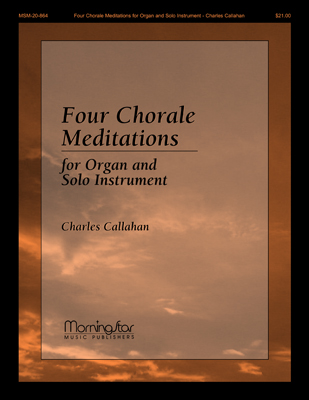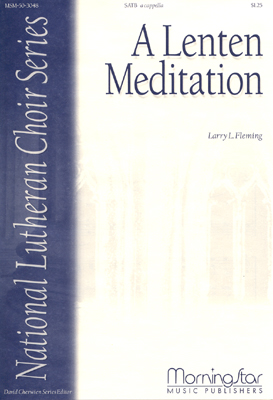- |
User Links
Alas, dear Lord, what law then hast Thou broken

Alas, dear Lord, what law then hast Thou broken
Author: Johann Heermann (1630); Translator: Catherine Winkworth (1863)Tune: HERZLIEBSTER JESU
Published in 22 hymnals
Printable scores: PDF, MusicXMLAudio files: MIDI
Representative Text
1 O dearest Jesus, what law have you broken
that such sharp sentence should on you be spoken?
Of what great crime have you to make confession,
what dark transgression?
2 They crown your head with thorns, they smite, they scourge you;
with cruel mockings to the cross they urge you;
they give you gall to drink, they still decry you;
they crucify you.
3 Whence come these sorrows, whence this mortal anguish?
It is my sins for which you, Lord, must languish;
yes, all the wrath, the woe that you inherit,
this I do merit.
4 What punishment so strange is suffered yonder!
The Shepherd dies for sheep that loved to wander;
the Master pays the debt his servants owe him,
who would not know him.
5 The sinless Son of God must die in sadness,
the sinful child of man may live in gladness;
we forfeited our lives, yet are acquitted;
God is committed.
6 I’ll think upon your mercy without ceasing,
that earth’s vain joys to me no more be pleasing;
to do your will shall be my sole endeavor
henceforth forever.
7 And when, dear Lord, before your throne in heaven
to me the crown of joy at last is given,
where sweetest hymns your saints forever raise you,
I too shall praise you.
Source: Christian Worship: Hymnal #432
Author: Johann Heermann
 Johann Heermann's (b. Raudten, Silesia, Austria, 1585; d. Lissa, Posen [now Poland], 1647) own suffering and family tragedy led him to meditate on Christ's undeserved suffering. The only surviving child of a poor furrier and his wife, Heermann fulfilled his mother's vow at his birth that, if he lived, he would become a pastor. Initially a teacher, Heermann became a minister in the Lutheran Church in Koben in 1611 but had to stop preaching in 1634 due to a severe throat infection. He retired in 1638. Much of his ministry took place during the Thirty Years' War. At times he had to flee for his life and on several occasions lost all his possessions. Although Heermann wrote many of his hymns and poems during these devastating times, his persona… Go to person page >
Johann Heermann's (b. Raudten, Silesia, Austria, 1585; d. Lissa, Posen [now Poland], 1647) own suffering and family tragedy led him to meditate on Christ's undeserved suffering. The only surviving child of a poor furrier and his wife, Heermann fulfilled his mother's vow at his birth that, if he lived, he would become a pastor. Initially a teacher, Heermann became a minister in the Lutheran Church in Koben in 1611 but had to stop preaching in 1634 due to a severe throat infection. He retired in 1638. Much of his ministry took place during the Thirty Years' War. At times he had to flee for his life and on several occasions lost all his possessions. Although Heermann wrote many of his hymns and poems during these devastating times, his persona… Go to person page >Translator: Catherine Winkworth
 Catherine Winkworth (b. Holborn, London, England, 1827; d. Monnetier, Savoy, France, 1878) is well known for her English translations of German hymns; her translations were polished and yet remained close to the original. Educated initially by her mother, she lived with relatives in Dresden, Germany, in 1845, where she acquired her knowledge of German and interest in German hymnody. After residing near Manchester until 1862, she moved to Clifton, near Bristol. A pioneer in promoting women's rights, Winkworth put much of her energy into the encouragement of higher education for women. She translated a large number of German hymn texts from hymnals owned by a friend, Baron Bunsen. Though often altered, these translations continue to be used i… Go to person page >
Catherine Winkworth (b. Holborn, London, England, 1827; d. Monnetier, Savoy, France, 1878) is well known for her English translations of German hymns; her translations were polished and yet remained close to the original. Educated initially by her mother, she lived with relatives in Dresden, Germany, in 1845, where she acquired her knowledge of German and interest in German hymnody. After residing near Manchester until 1862, she moved to Clifton, near Bristol. A pioneer in promoting women's rights, Winkworth put much of her energy into the encouragement of higher education for women. She translated a large number of German hymn texts from hymnals owned by a friend, Baron Bunsen. Though often altered, these translations continue to be used i… Go to person page >Text Information
| First Line: | Alas, dear Lord, what law then hast Thou broken |
| German Title: | Herzliebster Jesu |
| Author: | Johann Heermann (1630) |
| Translator: | Catherine Winkworth (1863) |
| Meter: | 11.11.11.5 |
| Source: | Devoti Musica Cordis, 1630 |
| Language: | English |
| Copyright: | Public Domain |
Tune
HERZLIEBSTER JESUPartially based on earlier melodies (including the Genevan tune for Psalm 23), HERZ LIEBSTER JESU was composed by Johann Crüger (PHH 42) and published in his Neues vollkömliches Gesangbuch (1640). Johann S. Bach (PHH 7) used the tune in both his St. Matthew Passion and St. John Passion, and variou…


 My Starred Hymns
My Starred Hymns





